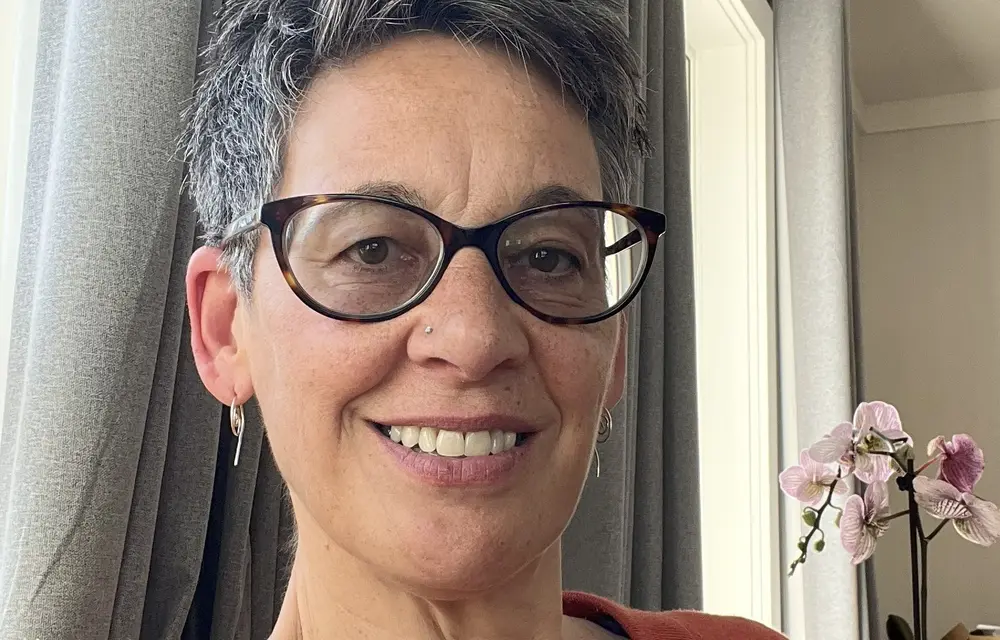Naomi's story
Naomi tries to avoid labels. She is a stroke survivor but she is much more than that and she won't let it define her.

Naomi is much more than a stroke survivor. While she is confronted by her losses every day, from the moment she gets out of bed, she’s chosen to live the best life she can and not to be defined by her condition. She wants other survivors to appreciate this too.
Naomi was just 53 years old when she had her stroke – a cerebellum stroke which disrupts blood flow to the cerebellum, located at the back of the brain.
“It affected my balance and coordination and still does. It will be life-long,” Naomi says, “It requires a lot of energy to focus on detailed tasks and I fatigue quickly.”
On June 7th, 2022, Naomi went to bed totally fine but couldn’t get up to go to the bathroom as the clock ticked over to the next day. Naomi’s face didn’t droop and her speech was fine, so any thought she was having a stroke came and went.
Because Naomi was young and her stroke symptoms weren’t typical, not only was she dealing with being unwell, she was confronted with questions about what she’d taken when help arrived. People were already trying to put labels on her.
It was an astute Emergency Department doctor who passed Naomi in the corridor at hospital and noticed she might have had a stroke.
Naomi would spend three weeks in Wellington Hospital and another three weeks at Keneperu Community Hospital. While Naomi had all the tools needed to progress her physical health, she realised that her mental health would be her biggest challenge.
Naomi had a lot of visitors while she was recovering and trying to adjust to a new way of life. She relishes connection as she lives alone. Her family live in Canada. Naomi remembers putting on a brave smile to let her friends know she was OK. Her thoughts were on them.
With the help of a psychologist, Naomi approaches life differently now and it helps her get out of a bad place quicker.
Naomi believes she was dealing with losing much of her old self in different ways but, not grieving, contributed to her struggling.
“Now I'm kind of like, ‘Well, it's OK just to have a bad day.’ I don't try to convince myself of all the good things in my life anymore. I just recognise and feel like, OK, I’m having a bad day. I let myself feel it as opposed to try to bury it,” Naomi says, “I give myself permission to have a day or two where I'm just going to be in my pyjamas and do nothing. I don't want to talk to anybody if I can or I’ve don’t have to feel I’ve got to do this or that.”
Naomi is becoming less of a people-pleaser.
And she tends not settle for less either.
“You're reading something where they gave you or they told you, you're going to be as good as you're going to be at six months. If I’d listened to that, I'd still be walking with a cane. It's acceptance that this has happened to me, but I'm not going to let it define me.”
There are many different sides to Naomi, including what she does for a living. She refuses to accept a one-size-fits-all label.